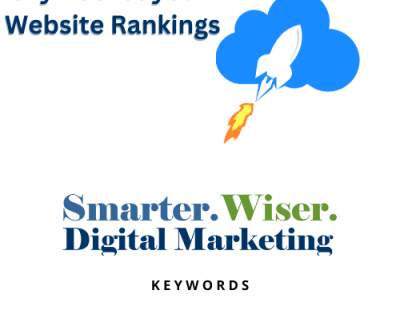Automating Blog Posts in WordPress: Save Time, Boost SEO, and Stay Consistent
- October 16, 2025
- AI and Machine Learning in SEO
Table of Contents
ToggleIn today’s digital world, consistency and efficiency are essential for online success. As blogs grow and audiences expect regular updates, manually publishing and optimising every post becomes time‑consuming. Automating blog posts in WordPress lets you maintain a steady publishing schedule, improve SEO and free up time for strategy and creativity. This article explains why automation is essential, highlights the tools and plugins available and provides a step‑by‑step guide to get you started.
Understanding WordPress Content Automation
Content automation refers to using software and plugins to handle routine tasks such as drafting, scheduling, publishing and optimising posts. Automation can be as simple as scheduling posts ahead of time or as sophisticated as integrating artificial‑intelligence (AI) tools that generate article outlines and perform SEO checks.
What Automation Means for Bloggers
- Scheduling posts: WordPress’s built‑in scheduler allows you to set publication dates and times, ensuring posts go live even when you are busy or away.
- AI content generation: Modern AI writing tools, powered by models like GPT‑4, can draft articles and suggest topics based on trending data. These tools integrate directly with WordPress and help maintain a consistent content pipeline.
- SEO and readability checks: AI‑enhanced SEO plugins (e.g., Yoast SEO and Rank Math) analyse content, provide keyword suggestions and perform regular audits to improve your search ranking.
Benefits of Automating Blog Posts
Consistency and Audience Engagement
Manual management becomes unmanageable as the volume of content grows. Automation tools help you maintain a consistent publishing schedule, ensuring regular engagement with your audience, which is key to building a loyal following and improving online visibility. By automating routine tasks, you can devote more time to developing quality content and analysing audience insights.
AI‑Powered Content Generation and Planning
AI writing tools integrated into WordPress can automatically generate drafts, suggest titles and even adapt to your brand’s tone. These tools save time and ensure a steady output of content. In addition, AI‑driven content planners analyse trending topics and user preferences to recommend topics, helping you stay ahead of your competitors.
Enhanced SEO Performance
Integrating AI and machine‑learning algorithms into your SEO strategy results in more nuanced optimisation. AI‑enhanced plugins provide real‑time keyword suggestions, readability scores and ongoing SEO audits to help your posts achieve higher rankings. Automated metadata, schema markup and internal linking tools further streamline optimisation.
Tools and Plugins for WordPress Automation
To begin automating your blog, consider these popular tools and integrations:
- Scheduling and workflow plugins: Tools such as PublishPress and Editorial Calendar help visualise your content pipeline and automatically publish posts at the right time. Jetpack also offers site management and scheduling features.
- AI content generators: Plugins that integrate OpenAI’s GPT models allow you to draft outlines or full articles. These generators can be customised to suit your brand voice and are ideal for brainstorming ideas or creating first drafts.
- AI‑powered SEO plugins: Yoast SEO Premium and Rank Math Pro incorporate AI for keyword research, readability analysis and automated meta data. These plugins continually audit your posts for improvements and integrate with Google Search Console.
- Social media automation: Tools like Blog2Social automatically share published posts to social networks, extend your reach and maintain consistent engagement across platforms.
- Workflow automation services: Zapier and IFTTT connect WordPress with other applications (e.g., email marketing or CRM), automating tasks such as sending newsletters when a post is published.
Step‑by‑Step Guide to Automating Your WordPress Blog
Follow these steps to harness the power of automation:
- Define your content strategy. Identify your target audience, topics and publishing frequency. Our digital consultancy team can help design an effective content roadmap.
- Install scheduling and editorial plugins. Use PublishPress or Editorial Calendar to plan posts and set publication dates.
- Integrate AI content tools. Add an AI writer plugin to generate drafts or outlines. Test different settings to match your tone and style.
- Optimise SEO with AI‑enhanced plugins. Install Yoast SEO or Rank Math for keyword suggestions, readability analysis and automated SEO audits.
- Automate social media and newsletters. Connect your blog to social media and email marketing services, so new posts automatically share with subscribers and followers.
- Monitor and refine. Use analytics to track how automated posts perform. Adjust your strategy based on engagement metrics and feedback.
Frequently Asked Questions (FAQs)
1. What is WordPress blog automation?
Automation involves using plugins and AI tools to handle tasks like generating drafts, scheduling posts and optimising SEO. This reduces manual workload and ensures consistent, high‑quality content.
2. How do AI tools generate blog content?
AI writing tools (e.g., GPT‑4 models) analyse prompts and historical data to draft posts. They can adapt tone and style to match your brand, provide topic suggestions and help maintain a regular posting schedule.
3. Are automated posts optimised for SEO?
Yes. AI‑enhanced plugins provide keyword suggestions, readability analysis and automated meta data generation. Regular SEO audits ensure your posts meet best practices and improve search visibility.
4. Will automation replace human writers?
Automation accelerates content creation but doesn’t replace humans. Writers still oversee strategic topics, quality control and brand voice. AI tools are most effective when used collaboratively to enhance efficiency and insight.
5. How do I start automating my WordPress blog? \
Begin with a clear content strategy, install scheduling and AI plugins, and gradually automate publishing and SEO tasks. If you need support, our digital consultancy team can tailor an automation plan to your goals.
Conclusion
Automating blog posts in WordPress transforms how you manage content. By leveraging scheduling tools, AI‑powered generators and SEO plugins, you can maintain consistency, reduce labour costs and achieve better rankings. Automation frees your team to focus on strategic decisions while ensuring a steady flow of high‑quality posts. For personalised guidance and hands‑on support, visit us on Google Maps or explore our digital consultancy service. Let’s help you implement automation that saves time, boosts SEO and strengthens your online presence.
About us and this blog
We are a digital marketing company with a focus on helping our customers achieve great results across several key areas.
Request a free quote
We offer professional SEO services that help websites increase their organic search score drastically in order to compete for the highest rankings even when it comes to highly competitive keywords.
We offer a FREE Website Audit. No Charge, No Catch, simply add your website, the email address to send report. We will send you a website audit report highlighting any website issues, broken links, alt tags missing, duplicate titles etc along with a Google Analysis of your content.
Recent Posts
All Website Tags
- Advanced SEO Analytics
- Advertising
- agentic ai
- AI and Machine Learning in SEO
- Ai Native Blueprint
- AI Search & GEO
- Algorithm Updates and SEO
- Algorithm Updates and SEO News
- Alt Text (Alternative Text)
- Analytics and Insights
- Anchor Text
- Audit
- Authority
- Automations
- Backlink Monitoring and Management
- Backlinks
- Black Hat SEO
- Brand Awareness
- Business Ranking for Trades
- Canonical URLs
- citations
- Content Creation Chronicles
- Content Marketing
- Content Marketing Corner
- Content Marketing for SEO
- copywriting
- CTR (Click-Through Rate)
- Digital Authority
- Digital Diagnostic
- Digital Diagnostic for SEO
- Digital Health Assessment
- Digital Marketing
- Digital Marketing Trends
- Domain Authority DA
- Duplication
- E-Commerce SEO
- E-E-A-T
- Email Marketing Mastery
- Entity-Level Protection
- External Linking
- GEO Generative Engine Optimising
- Google Core Update
- Google My Business GMB
- Heading Tags (H1, H2, H3, etc)
- Healthcare SEO Strategies
- Indexing
- Internal Linking
- Internal Linking Strategies
- International SEO Strategies
- Keyword Analysis and Optimisation
- Keyword Research and Analysis
- Keywords
- Large Language Models
- Link Building
- Link Building for SEO
- Link Building Strategies
- Link Building Techniques
- Link Building Tools and Tips
- LLM
- Local SEO
- Local SEO Spotlight
- Local SEO Strategies
- Local SEO Strategy
- Market Research
- Marketing
- Marketing Mix
- Meta Tags (Title, Description)
- Mobile SEO
- Off-Page Optimisation
- Off-Page SEO
- On-page SEO
- Online Audit Insights
- Online Audit Insights for SEO
- Openai
- Optimise Your SEO
- Optimise Your Website
- Organic Traffic
- Page Authority
- Page Load Speed
- Paid Search (PPC)
- Ranking
- Reputation Management and Online Branding
- Return on Investment (ROI)
- Rich Snippets
- schema
- Search Engine Optimising Service
- Search Ranking Analysis
- semantics
- SEO
- SEO Analytics and Reporting
- SEO Diagnostic Lab
- SEO Evaluation Toolkit
- SEO for Beauty
- SEO for Blogs and Content Platforms
- SEO for Hair Salons
- SEO for Spas
- SEO for Startups
- SEO for WordPress Websites
- SEO Health Assessment
- SEO Health Check
- SEO Performance Checkup
- SEO Success Secrets
- SERP
- Site Performance Analysis
- Social Media Integration for SEO
- Social Media Strategies Unveiled
- Target Audience
- Technical SEO
- Technical SEO Demystified
- Video SEO for YouTube
- Web Presence Checkup
- Website Health Check
- White Hat SEO





